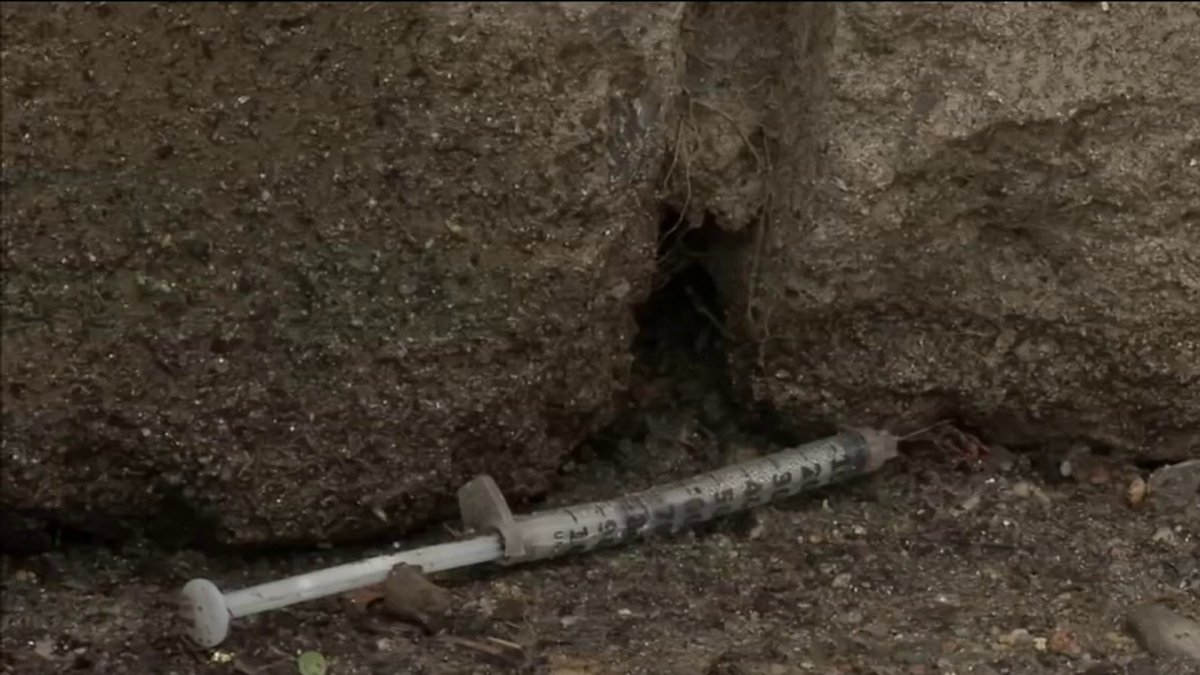
The powerful drug Xylazine, known on the street as “Tranq,” takes up 90% of the drug supply in Philadelphia. It is now considered a schedule three drug announced Gov. Shapiro on Tuesday. It has reached 32 counties surrounding the city, and the effects of xylazine cannot be treated by Narcan.
Governor Josh Shapiro spoke at Impact Services in Kensington on Tuesday morning, to discuss steps his office has taken to push back against a drug known as "tranq."
According to the governor, this drug -- xylazine, a sedative approved for veterinary use on large animals -- has contributed to at least 575 overdose deaths throughout the state in 2021 alone.
“Xylazine is a powerful animal sedative that should never be ingested by humans and is compounding our fight against the opioid crisis – and today, my administration is taking action to keep it out of our communities and protect Pennsylvanians. The steps we are taking today will help ensure this dangerous drug can’t be diverted from legitimate sources to the drug dealers harming our communities, while preserving its important use on animals,” Shapiro said in a statement.
Shapiro said that the emergence of xylazine in overdose deaths in 2021 was a marked increase over previous years.
Get Philly local news, weather forecasts, sports and entertainment stories to your inbox. Sign up for NBC Philadelphia newsletters.
As an example, he noted the drug only played a role in the overdose deaths of about 90 people in the state in 2017.
In fact, he said, in 2021, officials in Philadelphia reported that 90-percent of samples pulled from opioids that were taken off of the city's streets contained xylazine.
In response, the state's Acting Secretary of Health, Debra Bogen, has submitted a notice of intent to temporarily add xylazine to the list of schedule III drugs under Pennsylvania’s Controlled Substance, Drug, Device, and Cosmetic Act.
Local
Breaking news and the stories that matter to your neighborhood.
Bogen will also submit a notice of intent to schedule nitazines -- a class of synthetic opioids that have never been approved for use in the United States -- as a schedule I drug.
"Scheduling these drugs allows us to put tighter controls, security and record keeping requirements in place to keep them out of our communities," Shapiro said on Tuesday morning.
The governor's office said that scheduling a drug "requires manufacturers and distributors to not only verify that a practitioner, like a veterinarian, is licensed but that they are also authorized to receive a controlled substance."
It will also provide additional checks in an ordering system to make sure the drug is only provided to authorized practitioners and will add steps from practitioners to take to minimize potential theft or diversion of the drug.
In a statement on the move, the governor's office noted that, last year, the FDA warned that xylazine is not safe for use in humans.
The FDA also said that, along with potentially causing a deadly overdose, use of the drug "may also result in skin ulcers with wounds that excrete puss, have decaying tissue and bacterial infections, which can lead to amputation."
“Across the country and here in Pennsylvania we are seeing an alarming increase in the number of overdose deaths in which xylazine was a contributing factor,” said Bogen, in a statement. “Our focus remains on harm reduction strategies and helping people get treatment for substance use disorders. At the same time, we need to take action to protect people from xylazine that is increasingly found in the drug supply.”